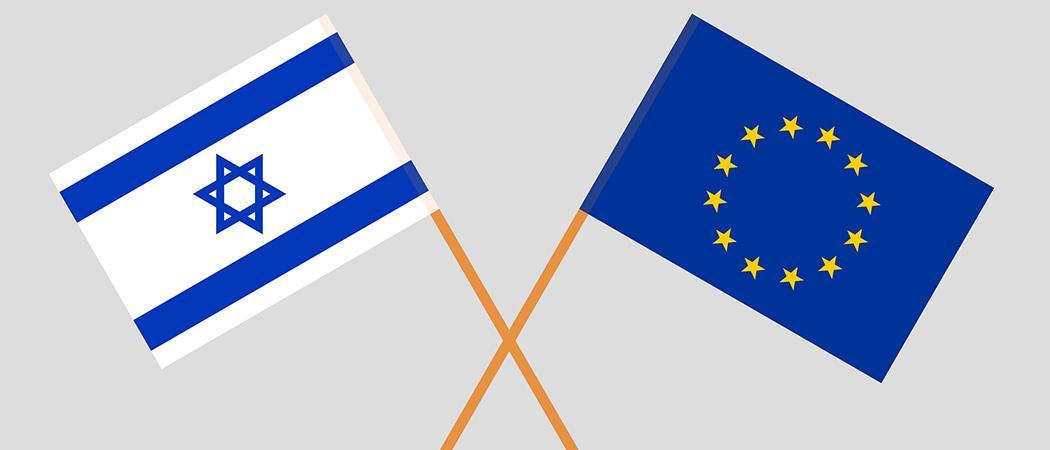If a majority of EU countries agree, the country would be barred from a type of grant that targets start-ups

The European Commission has suggested blocking Israel from a grant targeting start-ups, as EU outrage grows at Israel’s food blockade of Gaza, which has begun to cause widespread starvation in the besieged territory.
The proposal, which would need approval from a qualified majority of EU member states, is the first sign that the bloc will use access to its €93.5 billion Horizon Europe research and innovation programme to pressure Israel to end its siege of Gazans.
“While Israel has announced a daily humanitarian pause in Gaza fighting and has met some of its commitments under the common understanding on humanitarian aid and access, the situation remains severe,” said a statement released by the Commission on 28 July.
The measures would stop Israel-based start-ups from receiving accelerator grants from the European Innovation Council, which give firms up to €2.5 million to develop close-to-market technologies or products.
Accelerator grants may have been targeted by the Commission because they are more likely than other parts of the wider Horizon Europe programme to have potential military or security use. They often have “potential dual-use applications, such as in cybersecurity, drones, and artificial intelligence,” the Commission’s statement says.
In recent months, EU member states have become increasingly alarmed at Israel’s blockade of the territory, as well as killings of Palestinians trying to receive aid by Israeli forces.
A review of Israel’s conduct by the European External Action Service, the bloc’s diplomatic arm, concluded last month that Israel was committing numerous war crimes in Gaza, including attacks on hospitals to the mass displacement of Palestinians.
That report was part of an investigation into whether Israel had breached human rights conditions in its association agreement with the EU, which underpins the country’s association to Horizon Europe, as well as other links like trade.
However, last month, the bloc did not have the consensus needed to suspend all or parts of the agreement, with countries including Germany, Hungary and Austria still cautious on taking action.
Yet pictures of emaciated Palestinians and reports of starvation deaths have in the past week made EU criticism even more acute. “The images from Gaza are unbearable,” said Commission president Ursula von der Leyen earlier this week.
Crucially, Germany appears to be rethinking its formerly staunch opposition to any measures against Israel.
“The humanitarian catastrophe that we are witnessing in Gaza must end now,” said a joint statement from Germany, France and the UK last week. “Withholding essential humanitarian assistance to the civilian population is unacceptable.”
Chancellor Friedrich Merz today announced a humanitarian airdrop to get aid into Gaza, according to German media.
Explaining its proposal to suspend Israeli access to accelerator grants, the Commission said the decision “comes as a reaction to the review Art. 2 of the EU-Israel Association Agreement,” referring to human rights clauses.
“Respect for these obligations constitutes an essential part of EU-Israel cooperation under the Agreement, including for bilateral scientific and technological cooperation between the two parties,” the Commission added.
Related stories
- European universities divided on Israel Horizon Europe suspension
- Don’t kick Israel out of Horizon Europe, says German universities chief
- Horizon Europe expulsion ‘almost a death sentence for Israeli science’
Academic sanctions
As Israel’s attack on Gaza has created a deepening humanitarian crisis, European academia has been split over whether to boycott Israeli universities in response, and whether the country should be allowed to remain an associated country to Horizon Europe, giving it full access to grants and partnerships.
In 2024, Spanish universities were some of the first to say they would no longer work with Israeli organisations in Horizon Europe projects. The rectors of 10 Belgian universities have also demanded the EU suspend Israel’s association agreement, which would see it ejected from Horizon Europe.
But German universities have remained firmly against boycotts of Israeli academia, arguing Israeli universities remain a “liberal, democratic force” in the country.
So far, Israel has remained a fully associated member of Horizon Europe. But if today’s Commission sanctions are approved by EU member states, at least part of the programme would be blocked – although most parts, including the European Research Council, and international consortia grants, would remain open.
“The proposed suspension is a targeted and reversible action,” the Commission statement stresses. “It does not affect the participation of Israeli universities and researchers in collaborative projects and research activities under Horizon Europe.”





 A unique international forum for public research organisations and companies to connect their external engagement with strategic interests around their R&D system.
A unique international forum for public research organisations and companies to connect their external engagement with strategic interests around their R&D system.